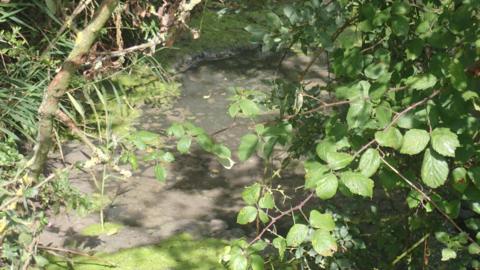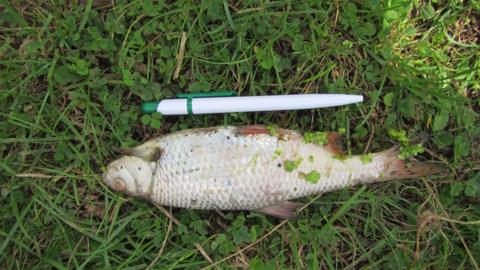Meanwhile in North Somerset, near Weston-super-Mare, another sewage pipe burst in August 2018. Again, untreated effluent polluted the rivers and the local marsh rhyne drainage system.
This led to more fish dying, including spined stickleback and eels.
The sewage pipe in question was a so-called "rising main", a pipe through which sewage is pumped under pressure.
The rising main had already been identified by Wessex Water prior to the incident, as a critical one that needed to be monitored, but the monitoring was not put in place until after the incident.
District Judge Joanna Dickens, sitting at Swindon Magistrates Court, ruled the company was negligent, because "of the failure to install monitoring equipment at an earlier time".
The Environment Agency said that Wessex Water's rising mains are "ageing" and account for many of the company's pollution incidents.
Janine Maclean, of the Environment Agency, said: "We recognise the company is increasing its monitoring of rising mains, but monitoring is still reliant on failure, and we would like to see the company significantly increase the level of investment it makes to proactively replace rising mains before they fail."
A Wessex Water spokesperson apologised for the incidents, and said the company had done what it could as soon it realised what had happened.
They continued: “Since these incidents took place, we have invested in AI technology to detect where potential issues on our network might occur to further protect the environment.”

